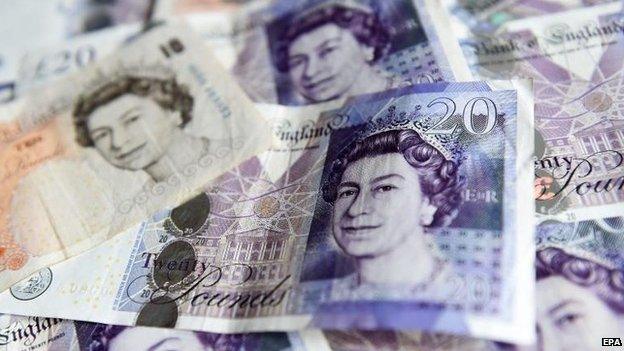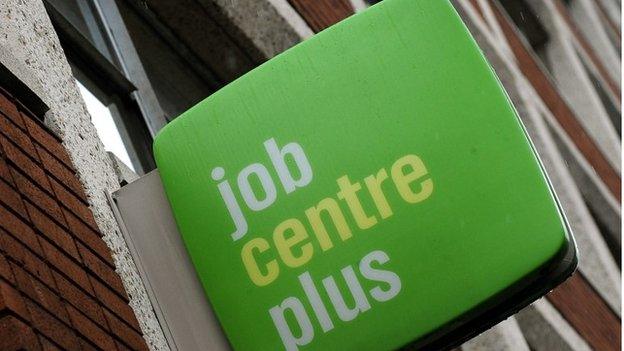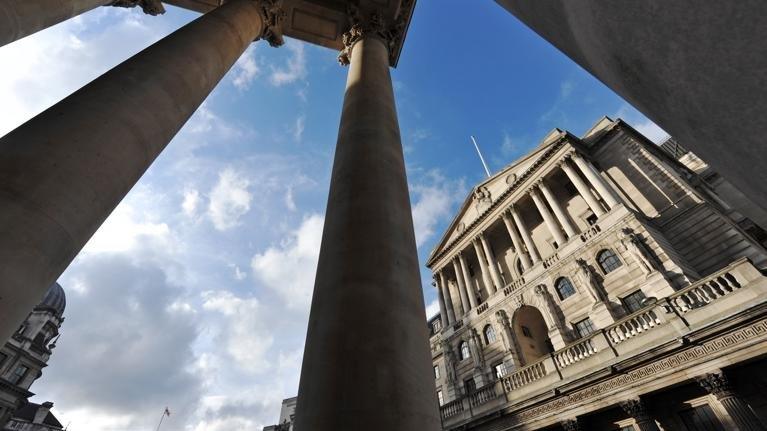UK government borrowing falls in June on record tax haul
- Published

UK government borrowing fell to £9.4bn in June, down £0.8bn from a year earlier, as income and corporation tax receipts rose to record levels.
The Office for National Statistics (ONS), external said income tax receipts rose to £11.5bn, while corporation tax brought in £1.7bn, both record monthly highs.
It was lowest borrowing figure for June since 2008, However, analysts had been expecting it to drop further to £8.5bn.
In the financial year so far, borrowing has fallen by £6.1bn to £25.1bn.
The ONS figures showed government finances received a £117m boost last month from a fine paid by Lloyds Banking Group over its handling of payment protection insurance (PPI) complaints.
In the summer Budget earlier this month, the Office for Budget Responsibility (OBR) forecast public borrowing would be £69.5bn this year.
Public sector net debt at the end of June 2015 was £1.513 trillion, or 81.5% of annual UK economic output, up from 80.8% in May.
Spending cuts
A Treasury spokesperson said the figures showed the government's deficit reduction plan was working but added "the job is not done".
The government is aiming to eliminate the budget deficit by 2019 and to run a £10bn surplus in 2020 and in subsequent years.
Chancellor George Osborne announced £37bn of spending cuts during this parliament in the summer Budget.
In November, the government's spending review will set out £20bn worth of departmental budget cuts over the next five years.
Howard Archer, chief UK and European economist at IHS Global Insight, said while the borrowing figures missed economists' estimates, George Osborne would probably still be pleased as the nation's finances were improving.
But he added, the annual borrowing figure could overshoot the OBR's estimate slightly.
"If the pattern of the first three months of the fiscal year continued, public borrowing would amount to £70.9bn in 2015-16," he said.
- Published15 July 2015

- Published14 July 2015

- Published9 July 2015
